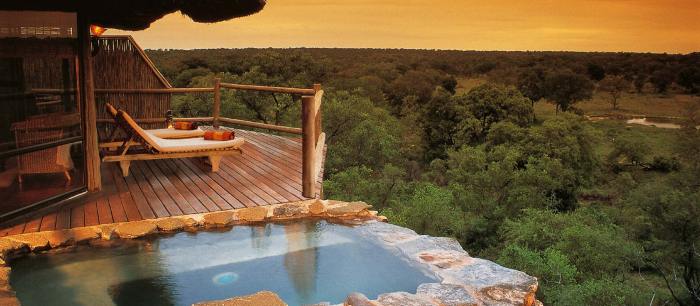asylummedialtd.com – African Wildlife Tours take you on a trip through the heart of Africa that you’ll never forget. You’ll see beautiful scenery, different ecosystems, and famous animals. Africa has a wide range of wildlife experiences that will take your breath away, from the open plains of the Serengeti to the lush jungles of the Congo. An amazing variety of animals live on the continent, such as the “Big Five” (lion, elephant, leopard, rhino, and buffalo) and many other interesting species. When you go on an African wildlife tour, you can see the huge variety of animals that live on this amazing land and enjoy the beauty and grandeur of its natural sights.
To protect Africa’s fragile environments and make sure the well-being of its wildlife, responsible tourism is a must. You can help protect these valuable natural resources and make sure that future generations can enjoy the beauty of Africa’s wildlife by booking your trip through reputable tour companies that put environmental concerns first.
Introduction to African Wildlife Tours

Africa is known as the “cradle of humanity” and is home to a huge variety of animals. This makes it a popular place for nature lovers and people looking for excitement. Traveling through the continent’s wild areas gives you a look at the untamed beauty and strength of nature, where famous species roam freely and ecosystems thrive in their native state. Initiating an African wildlife tour is more than just a holiday; it’s a chance to connect with nature, learn about conservation efforts, and help protect these amazing animals and their homes.
The Significance of African Wildlife Tourism
African wildlife tourism plays a crucial role in conservation efforts, contributing significantly to the economies of many African nations. By supporting local communities and conservation initiatives, tourists can directly contribute to the protection of these invaluable natural resources.
- Economic Benefits: Tourism brings in a lot of money for towns, which helps businesses, creates jobs, and improves infrastructure. This type of business gives towns a strong reason to look after their wildlife and natural resources, which ensures their long-term survival.
- Conservation Funding: A significant portion of tourism revenue is often channeled towards conservation initiatives, funding research, anti-poaching efforts, and habitat protection programs. This financial support is vital for the survival of endangered species and the preservation of biodiversity.
- Raising Awareness: Wildlife tourism gives people a chance to learn about why conservation is important, what kinds of risks animals face, and what they can do to help support sustainable practices. When tourists see these landscapes for themselves, they become advocates for protection when they get back home.
Diverse Ecosystems and Iconic Wildlife
Africa boasts an astonishing array of ecosystems, from the vast savannas of the Serengeti to the lush rainforests of the Congo Basin, each teeming with unique and captivating wildlife.
- The Serengeti National Park: Millions of wildebeest cross the plains every year in search of new places to graze. This famous Tanzanian park is famous for the wildebeest migration. There are also many types of dangerous animals in the park, such as lions, leopards, cheetahs, and hyenas.
- The Kruger National Park: Kruger National Park is one of the world’s biggest game parks and is in South Africa. It is home to a huge variety of animals. Kruger has a lot of different species, including the “Big Five” (lion, leopard, elephant, rhinoceros, and buffalo), making it a great place to see wildlife.
- The Okavango Delta: This unique wetland ecosystem in Botswana is a haven for diverse birdlife, including numerous species of waterbirds, raptors, and migratory birds. The delta is also home to a variety of mammals, including elephants, hippos, and crocodiles.
Responsible Tourism Practices
While experiencing the wonders of African wildlife is an unforgettable adventure, it’s essential to prioritize responsible tourism practices to ensure the well-being of both wildlife and local communities.
- Choose Reputable Tour Operators: Opt for tour operators that prioritize ethical practices, such as minimizing their environmental impact, supporting local communities, and adhering to wildlife conservation guidelines.
- Respect Wildlife: Maintain a safe distance from animals, avoid disturbing their natural behavior, and refrain from feeding them. Remember that wildlife is wild and unpredictable, and their safety should always be paramount.
- Support Local Communities: Patronize local businesses, purchase souvenirs from local artisans, and engage with communities to learn about their culture and traditions. This helps to ensure that tourism benefits the local people and their livelihoods.
- Minimize Your Environmental Impact: Pack light to reduce baggage weight and fuel consumption, use reusable water bottles and containers, and dispose of waste responsibly. By minimizing your footprint, you contribute to the long-term health of these precious ecosystems.
Popular Destinations in Africa
/GettyImages-841614444-2ec581f5d7c14caf9a624c44d87f575d.jpg?w=700)
Some of the most amazing animal shows in the world can be found in Africa. The continent has a wide range of environments, from the open fields of the Serengeti to the thick jungles of the Congo. Each is full of interesting animals. Sometimes it’s hard to figure out where to go on an African wildlife tour, but if you plan ahead, you can experience the wild in its best form.
Popular Destinations in Africa
Africa boasts a wide array of wildlife destinations, each offering unique experiences. Below is a table highlighting some of the most popular destinations:
| Destination | Key Wildlife | Activities | Best Time to Visit |
|---|---|---|---|
| Serengeti National Park, Tanzania | Lions, elephants, leopards, cheetahs, wildebeest, zebras, and numerous bird species | Game drives, hot air balloon safaris, walking safaris, cultural visits | June to October (dry season) for the Great Migration |
| Kruger National Park, South Africa | The Big Five (lion, elephant, leopard, rhino, buffalo), hippos, crocodiles, and various bird species | Game drives, walking safaris, night drives, bird watching | May to October (winter) for cooler temperatures and better wildlife viewing |
| Masai Mara National Reserve, Kenya | Similar to the Serengeti, with a focus on the Great Migration | Game drives, hot air balloon safaris, walking safaris, cultural encounters with the Maasai people | July to October (dry season) for the Great Migration |
| Chobe National Park, Botswana | Elephants, lions, leopards, hippos, crocodiles, and a vast array of bird species | Game drives, boat safaris on the Chobe River, walking safaris | May to October (dry season) for concentrated wildlife viewing |
Wildlife Encounters and Activities: African Wildlife Tours

Africa is renowned for its diverse wildlife, offering unforgettable encounters with iconic species like lions, elephants, and giraffes. Immerse yourself in the beauty and wonder of the African wilderness through a range of activities designed to cater to different interests and preferences.
Game Drives
Game drives are the best way to see wildlife in Africa. Open-air cars, which are usually 4x4s, can go through a variety of landscapes, giving you the best chances to see animals in their native environment. Expert guides share their knowledge and views with others, making the experience better by adding interesting comments and helping people identify different species.
Walking Safaris
Walking tours are a unique way to get a closer look at wildlife and experience it more fully. You’ll walk through the bush with the help of expert trackers and get a close look at the sights, sounds, and smells of the African desert. This way of doing things helps us understand the delicate balance of the environment better and appreciate the small details of animal behavior more.
Boat Trips, African Wildlife Tours
A lot of places in Africa where you can see wildlife offer boat rides on rivers, lakes, and ponds. By going on these trips, you can see the scenery from a different angle and watch animals from the water. Going on a boat trip is a great way to see hippos, crocodiles, and many kinds of birds. There are places where you might even see elephants or other big animals coming down to the water.
Ethical Wildlife Viewing Practices
Responsible wildlife tourism is crucial for the long-term conservation of Africa’s precious ecosystems. Ethical wildlife viewing practices prioritize the well-being of animals and the preservation of their natural habitats. Here are some key guidelines:
- Respect wildlife boundaries and avoid disturbing animals, especially during breeding or nesting seasons.
- Maintain a safe distance and avoid approaching animals, especially predators or mothers with young.
- Refrain from feeding wild animals, as this can disrupt their natural behavior and lead to dependence on humans.
- Support lodges and tour operators that adhere to ethical wildlife viewing practices and contribute to conservation efforts.
Activities Tailored to Different Interests
African wildlife tours offer a range of activities that cater to diverse interests. Here are some examples:
- Photography: Capture stunning images of iconic wildlife, landscapes, and cultural experiences. Look for opportunities to photograph animals in their natural environment, showcasing their behavior and interactions.
- Birdwatching: Africa boasts a diverse range of bird species, making it a paradise for bird enthusiasts. Explore different habitats, from savannas and forests to wetlands and coastal areas, to spot a variety of avian wonders.
- Cultural Immersion: Engage with local communities, learn about their traditions, and experience their unique way of life. Visit villages, attend cultural events, and interact with artisans to gain a deeper understanding of the human element in the African landscape.
Planning Your African Wildlife Tour

Planning an African wildlife tour is an exciting adventure, but it requires careful consideration and organization. To make the most of your experience, it’s crucial to plan meticulously, from choosing the right destination to booking flights and accommodations.
Choosing Your Destination
Africa has a huge range of wildlife and scenery, which makes it hard to pick just one place to visit. Think about your hobbies and income to narrow down your choices. If you’re really into big game, for example, you might want to visit the Maasai Mara in Kenya or Kruger National Park in South Africa. Volcanoes National Park in Rwanda is a must-see if you like monkeys. Botswana’s Chobe National Park is a great place to visit if you’re on a tight budget.
Researching Tour Operators
Once you know where you want to go, you should look into tour companies. This is very important to make sure you stay safe and have a good time. Check out online reviews and comments from people who have used the service before. Check to see if the business is registered, insurance, and has a history of happy customers. Think about things like the size of the group, the tour schedule, and the guides’ level of experience.
Booking Accommodations and Flights
Booking accommodations and flights in advance is essential, especially during peak season. Consider your budget and the type of accommodation you prefer, from luxury lodges to budget-friendly campsites. When booking flights, factor in the time needed for internal flights within Africa. Be sure to check visa requirements and ensure you have adequate travel insurance.
Packing Essentials
Packing for an African wildlife tour requires careful planning. Here are some essential items:
- Comfortable and durable clothing, including layers for different weather conditions
- Sturdy hiking boots or walking shoes
- A wide-brimmed hat and sunglasses for sun protection
- Insect repellent and sunscreen
- Binoculars for wildlife viewing
- A camera with a good zoom lens
- A first-aid kit and any necessary medications
- A small backpack for day trips
Tips for a Smooth Trip
- Pack light, as luggage restrictions may apply.
- Be prepared for potential changes in itinerary due to weather or wildlife movements.
- Respect local customs and traditions.
- Stay hydrated and eat healthy foods.
- Most importantly, be patient and open to new experiences.
Sustainability and Conservation

Before going on a wildlife adventure in Africa, you should know how important it is to protect the natural history of this amazing land while also allowing tourists to visit. Wildlife tourism can have both good and bad effects on the environment and the people who live nearby, even though it can offer unique experiences. For Africa’s environments and the people who depend on them to stay healthy over time, sustainable practices are essential.
The Impact of Tourism on African Wildlife and Ecosystems
As wildlife tourism has grown, it has brought both chances and problems. It can help with conservation efforts by bringing in money for protected places, but it could also be dangerous. More people doing things can damage habitats, pollute the environment, and help exotic species spread. Also, people who want to see wildlife can put stress on groups that are already weak, which could lead to overexploitation.
Conservation Efforts and Initiatives
Recognizing the importance of protecting Africa’s biodiversity, numerous conservation efforts are underway. These initiatives aim to address the challenges posed by tourism and ensure the long-term survival of wildlife and habitats.
- Protected Area Management: Protecting wildlife and their homes requires setting up and running national parks, forests, and other protected places. For rare species, these places are safe havens that protect the health of fragile ecosystems.
- Anti-Poaching Initiatives: Poaching is still a big problem for a lot of African wildlife. Conservation groups and states are working hard to stop theft by increasing patrols, gathering information, and getting the community involved.
- Community-Based Conservation: Engaging local communities in conservation efforts is vital. By empowering communities to participate in the management of natural resources, conservation initiatives become more effective and sustainable.
- Ecotourism Development: Promoting ecotourism practices that minimize environmental impact and maximize benefits for local communities is essential. Ecotourism focuses on responsible travel that fosters environmental awareness and supports conservation efforts.
How Travelers Can Contribute to Responsible Tourism Practices
As a traveler, you can play a significant role in supporting sustainable tourism in Africa. By making conscious choices and adopting responsible practices, you can contribute to the conservation of wildlife and habitats.
- Choose Reputable Tour Operators: Select tour operators who prioritize responsible practices, such as minimizing their environmental footprint, supporting local communities, and adhering to ethical wildlife viewing guidelines.
- Respect Wildlife: Maintain a safe distance from animals, avoid making loud noises, and refrain from feeding or harassing them. Remember that wildlife should be observed in their natural habitat with minimal disturbance.
- Support Local Communities: Choose accommodations and businesses that are owned and operated by local communities. This helps to ensure that the benefits of tourism are shared equitably.
- Reduce Your Environmental Impact: Minimize your use of plastic, conserve water, and dispose of waste responsibly. By being mindful of your actions, you can reduce your footprint on the environment.
- Learn About Conservation Issues: Take the time to learn about the challenges facing African wildlife and the conservation efforts underway. This knowledge will enable you to make informed decisions and become a more responsible traveler.
A animal tour in Africa is a journey that you will remember for a long time after you get back home. Seeing a pride of lions hunting on the open fields is exciting, but watching a group of elephants graze in the golden light of sunset is peaceful. Every moment is full of awe and wonder. You can make an amazing experience that will teach you a lot about the beauty and strength of Africa’s wildlife by picking a tour that fits your interests and budget. Remember that what you do has a direct effect on the animals you meet and the surroundings as you plan your trip. You can help protect Africa’s amazing wildlife for future generations by following responsible tourist practices.







